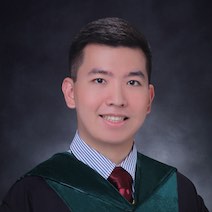

I went to a Chinese high school, so we were taught to obey authority. It was a Protestant school, so we were taught not to question the Bible. We also had Creationist "science" books from Florida and history books that didn’t have much to say about a certain President who ruled for 20 years. You get the picture.
I was the last person you would probably expect to see go to a public university. Coming from a sheltered Chinese Protestant high school to a state university in the middle of Manila wouldn’t be complete without some culture shock.
Who are these people taking over the stage? How disrespectful! What? A lightning rally? Why?
I used to hate protests. I used to ride that high horse without any regard for the facts on the ground. Sure, I still hate disruptions like that, but after having seen what’s wrong with my country firsthand through 12 years of adult existence, 4 years of college, 4 years of medical school, and 3 years fighting off death by poverty or red tape in an overcrowded, underfunded public hospital, there’s bound to be a Hulk within me just twitching to burst out and smash everything. And I wouldn’t be the only one. (READ: CHR reminds government: Activism is a right)
What is activism?
The Oxford Dictionary defines "activism" as “the policy or action of using vigorous campaigning to bring about political or social change.” In the Philippines, "activist" connotes membership in a communist rebellion or participation in confrontational protests that result in some violence and damaged property. That divergence shows our immaturity, our failure to understand this completely; it’s probably a holdover from the dictatorship.
No international authority has defined activism as an exclusively leftist phenomenon, even if it so happens that many activists happen to lean on the left end of the spectrum. Gandhi wasn’t a Communist; neither was Mandela. Hungary and Czechoslovakia were invaded by the Soviets for straying too far away from Soviet hegemony. Martial law could not stop members of a trade union from gaining power in Poland, in a victory that signaled the end of communism and the Soviet empire.
One may be surprised by how activism has thrived in more conservative parts of the world like in Asia. Gandhi called for nonviolent resistance, for civil disobedience against British colonial rule. Other peoples in Asia have seen their share of nonviolent resistance. It succeeded in Thailand, South Korea, and the Philippines. It fell to gunfire in Burma and China. We owe whatever prosperity, freedom, and stability we still enjoy today to those who had the gumption to speak out and demand for nothing less than better.
China and activism
Chiang and Mao claimed to be disciples and successors to the legacy of Sun Yat-Sen, a physician whose Three Principles of the People laid the groundwork for a modern Chinese republic. Who could forget the chaos of the 1960s and the reforms of the 1980s? Tiananmen, 1989. Taiwan, 2014. Hong Kong, 2019. One could say that activism runs in Chinese blood.
According to Lee Kuan Yew, Singapore's first prime minister: "It is vital that the younger generation of Chinese, who have only lived during a period of peace and growth in China and have no experience of China’s tumultuous past, are made aware of the mistakes China made as a result of hubris and excesses in ideology."
Beyond diagnoses
Physicians are taught to interview and examine patients in a systematic manner. The same goes for making a diagnosis. Pathology, the study of how illnesses work, forms an inescapable bulk of medical education. One has to know how something works in order to fix it. But physicians are also taught to see their patients as people, with lives of their own, with family and friends who care for them. It’s not just the flu; it’s a day missed in school, a day’s worth of earnings lost. It’s not just cancer; it’s selling the farm to pay for the trips to and from home for the next 6 months.
Even medical workers can be activists, like the Syrians who want Russia to stop bombing their hospitals, the Americans who won’t “stay in their lane” like the NRA warned them to because saving lives and ending gun violence is their lane, or the late ophthalmologist from Wuhan who warned people to watch out for a new kind of pneumonia. Public service, plain and simple.
Legacy
Activism is one of the hallmarks of a mature civil society and a healthy democracy. It led to the fall of some of the world’s most powerful empires and the rise of many free peoples. Its legacy has shaped our histories and continues to shape our civilizations. Such a process can be peaceful or violent, and it doesn’t just end with a change in the status quo.
Activism is a human trait. We learn, adapt, grow, and evolve. We continue what works and change what doesn’t. We speak out because we understand that we’re not perfect and that there’s no shame in admitting it. We speak out because we know we deserve better. We speak out because we believe in dignity. In respect. In responsibility. In freedom. In democracy. – Rappler.com
Jonathan E. Sy, 29, is a graduate of the University of the Philippines College of Medicine who hopes that all the eye-rolling he does from reading the news will spare him the trouble of eye bags and wrinkles.